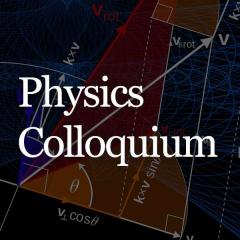Speaker: Professor Ross McKenzie
Affiliation: University of Queensland
Abstract
The 2024 Nobel Prize in Physics was awarded to John Hopfield and Geoffrey Hinton “for foundational discoveries and inventions that enable machine learning with artificial neural networks.” Half of the 2024 Chemistry prize was awarded to Dennis Hassabis and John Jumper for “protein structure prediction” using artificial intelligence. I will describe the physics background needed to appreciate the significance of the awardees work.
Hopfield proposed a simple theoretical model for how networks of neurons in a brain can store and recall memories. Hopfield drew on his background in and ideas from condensed matter physics, including the theory of spin glasses, the subject of the 2021 Physics Nobel Prize.
Hinton, a computer scientist, generalised Hopfield’s model, using ideas from statistical physics to propose a “Boltzmann machine” that used an artificial neural network to learn to identify patterns in data, by being trained on a finite set of examples.
For fifty years scientists have struggled with the following challenge in biochemistry: given the unique sequence of amino acids that make up a particular protein can the native structure of the protein be predicted? Hassabis, a computer scientist, and Jumper, a theoretical chemist, used AI methods to solve this problem, highlighting the power of AI in scientific research.
I will briefly consider some issues these awards raise, including the blurring of boundaries between scientific disciplines, tensions between public and corporate interests, research driven by curiosity versus technological advance, and the limits of AI in scientific research.
About Physics colloquium
The Physics Colloquium series hosts a range of speakers from Australia and abroad. The series explores a variety of topics and everyone is welcome to come along. The seminars are open so there is no need to register your attendance.
If you would like to sign up for colloquium announcement emails, you can join the mailing list by sending a blank email to:
- For UQ email addresses: physics-colloquium-others-join@lists.science.uq.edu.au
- For non-UQ email addresses: physics-announce-external-join@lists.science.uq.edu.au
(Note: if you receive physics-all emails, you should already receive these and don't need to sign up again).
Venue
Room: 222

